Orthobiologic Treatments NJ and NYC - Victory Medical Institute
Revolutionizing healing through innovative Orthobiologic treatments that enhance natural regeneration and improve the quality of life for individuals with musculoskeletal conditions.
Orthobiologic Therapy Is A Revolutionary Approach to Healing Musculoskeletal Conditions Serving Patients in Morris Plains New Jersey and Manhattan New York
What are Orthobiologic Treatments?
Orthobiologic treatment is a cutting-edge modality that harnesses the body’s natural healing capabilities to address musculoskeletal injuries and conditions. This treatment involves using biological substances, such as Orthobiologics, platelet-rich plasma (PRP), and growth factors, often derived from the patient’s body. Orthobiologic treatment improves tissue regeneration and accelerates healing by isolating and concentrating these healing components. It is commonly used to treat conditions like osteoarthritis, tendon injuries, and ligament tears, providing a non-surgical alternative for many patients. The minimally invasive nature of this treatment is a significant advantage, as procedures can often be performed in an outpatient setting with reduced recovery time compared to traditional surgical interventions.
Research indicates that orthobiologic therapies can enhance outcomes following injuries by promoting better healing and reducing pain. For instance, PRP injections have gained popularity for their ability to alleviate symptoms and improve function in individuals with chronic joint pain. Additionally, Orthobiologic treatment has shown promise in regenerating damaged cartilage and muscle tissue. As the field of orthobiologics continues to evolve, ongoing studies are further exploring its efficacy and the best methodologies for treatment. Overall, Orthobiologic treatment represents a significant advancement in regenerative medicine, offering new hope for patients seeking relief from debilitating musculoskeletal conditions.
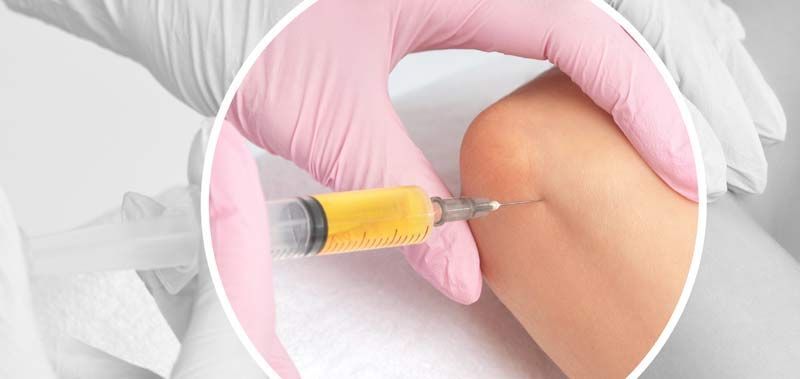
What Orthobiologics Can Treat
Orthobiologics can potentially treat a variety of medical conditions and diseases, including but not limited to spinal cord injuries, Parkinson’s disease, Alzheimer’s disease, multiple sclerosis, stroke, heart diseases such as heart attacks and congestive heart failure, type 1 diabetes, osteoarthritis, rheumatoid arthritis, sports injuries, tendon and ligament injuries, and various types of muscular dystrophy. It is also being explored for its applications in treating autoimmune disorders, chronic pain conditions, liver diseases like cirrhosis, skin wounds and burns, and certain blood disorders, including leukemia and lymphoma.
Research is ongoing into using Orthobiologics for regenerative medicine purposes, such as tissue repair and organ regeneration, as well as cosmetic applications. Overall, the scope of conditions for which Orthobiologic treatment is being studied is vast, reflecting its potential to transform treatment options across numerous medical fields.
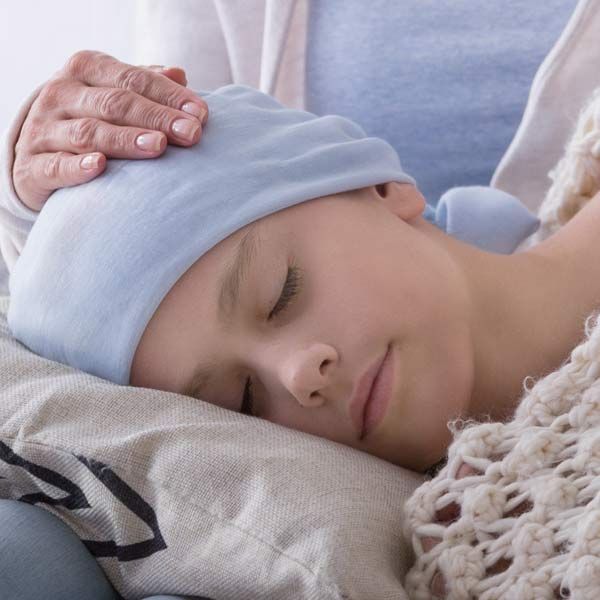
Blood Disorder Treatments
Orthobiologics play a crucial role in treating various blood disorders, including conditions like leukemia and lymphoma. One of the most common applications is through bone marrow transplants, where healthy Orthobiologics are introduced to a patient’s bloodstream to replace damaged or diseased marrow. In cases of leukemia, Orthobiologics can help regenerate healthy blood cells after chemotherapy has eradicated cancerous cells, allowing the body to recover and produce a normal blood supply.
Similarly, for lymphoma patients, Orthobiologic treatments can restore the immune system and enhance the body’s ability to fight infections. Additionally, advancements in Orthobiologic research are paving the way for novel therapies that target specific blood disorders at the cellular level, offering hope for more personalized and effective treatments. Orthobiologic treatment represents a transformative approach to managing blood disorders, significantly improving patients’ quality of life and survival rates.
Learn more about Blood Disorder Treatments.
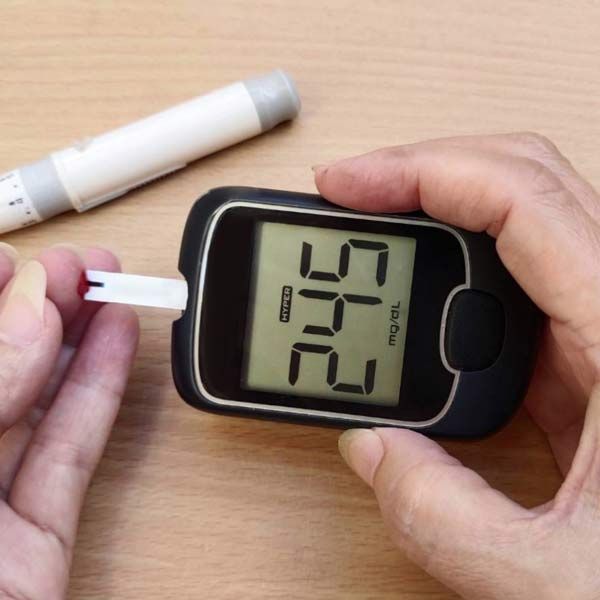
Emerging Therapies
Orthobiologics are emerging as a promising treatment for chronic conditions such as diabetes and heart disease. In diabetes management, particularly Type 1 diabetes, researchers are exploring using Orthobiologics to regenerate insulin-producing beta cells in the pancreas. This could restore the body’s ability to regulate blood sugar levels naturally. For heart disease, Orthobiologic treatment aims to repair damaged heart tissue by promoting the regeneration of cardiac cells, improving heart function after events such as heart attacks.
Additionally, Orthobiologics can help reduce inflammation and enhance the blood supply to damaged areas, facilitating healing. As research advances, these therapies offer hope for more effective treatments that address the underlying causes of these diseases rather than merely managing their symptoms.
Learn more about Treatment for Emerging Therapies.

Neurodegenerative Diseases
Orthobiologics have emerged as a potential treatment for neurodegenerative diseases such as Parkinson’s, Alzheimer’s, and multiple sclerosis. In the case of Parkinson’s disease, Orthobiologic treatment aims to replace the lost dopamine-producing neurons, which are critical for regulating movement and coordination. Researchers are exploring different types of Orthobiologics, including induced pluripotent Orthobiologics (iPSCs), which can be derived from a patient’s tissues, minimizing the risk of immune rejection.
For Alzheimer’s disease, Orthobiologics may help repair damaged neural connections and promote the growth of new neurons, potentially slowing cognitive decline. Similarly, in multiple sclerosis, Orthobiologic treatments regenerate myelin, the protective sheath around nerves damaged in this autoimmune condition, improving nerve signaling and restoring function. Victory Medical Institute’s innovative therapies offer hope for more effective treatments targeting these debilitating diseases’ root causes.
Learn more about Neurodegenerative Disease treatments.
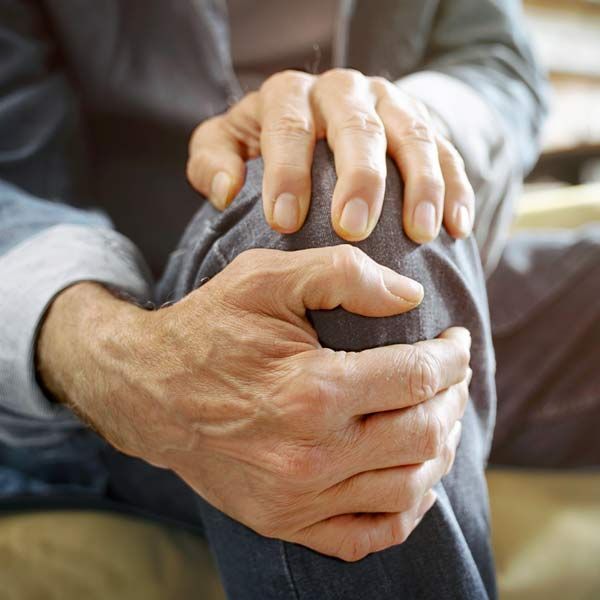
Osteoarthritis
Orthobiologics offer a promising approach to treating osteoarthritis by promoting the regeneration of damaged cartilage and reducing inflammation in affected joints. The treatment typically involves extracting Orthobiologics from the patient’s bone marrow or adipose tissue and injecting them directly into the osteoarthritic joint. Once injected, these Orthobiologics can differentiate into cartilage-producing cells, potentially repairing the damaged cartilage and improving joint function. Furthermore, Orthobiologics secrete various growth factors vital in reducing inflammation and promoting healing within the joint environment.
Patients often experience significant pain relief and enhanced mobility after undergoing Orthobiologic treatment, making it a valuable alternative to more invasive treatments like joint replacement. Ongoing research continues to explore this treatment’s long-term benefits and effectiveness, offering hope for many individuals suffering from osteoarthritis.
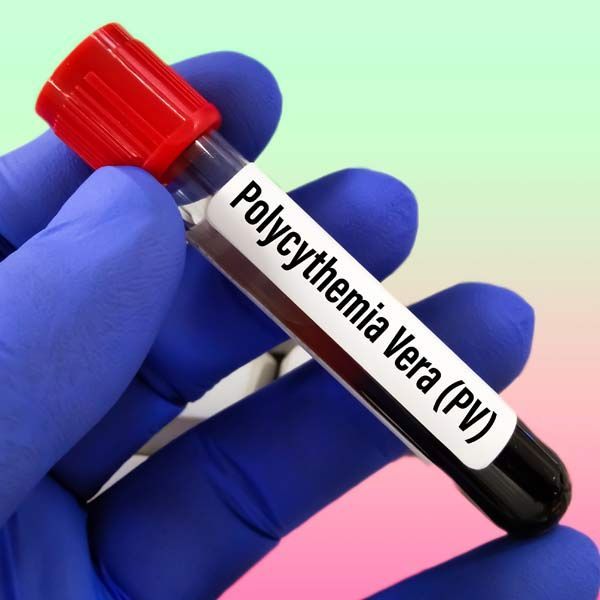
Polycythemia Vera
Polycythemia Vera
Orthobiologics are being explored as a potential treatment for Polycythemia Vera (PV), a blood disorder characterized by the overproduction of red blood cells. In patients with PV, the abnormal proliferation of these cells can lead to serious complications, such as blood clots and organ dysfunction. Orthobiologic treatment resets the bone marrow environment, potentially allowing for the restoration of normal blood cell production. Treatment approaches may involve bone marrow transplantation, where healthy donor Orthobiologics replace the patient’s dysfunctional marrow.
Researchers are investigating gene treatment techniques in conjunction with Orthobiologics to directly address the genetic mutations responsible for PV. While Orthobiologic treatment for Polycythemia Vera is still largely experimental, early studies show promise in improving patient outcomes and managing the disease effectively. As research continues, Orthobiologic treatments offer new hope for individuals suffering from this challenging condition.
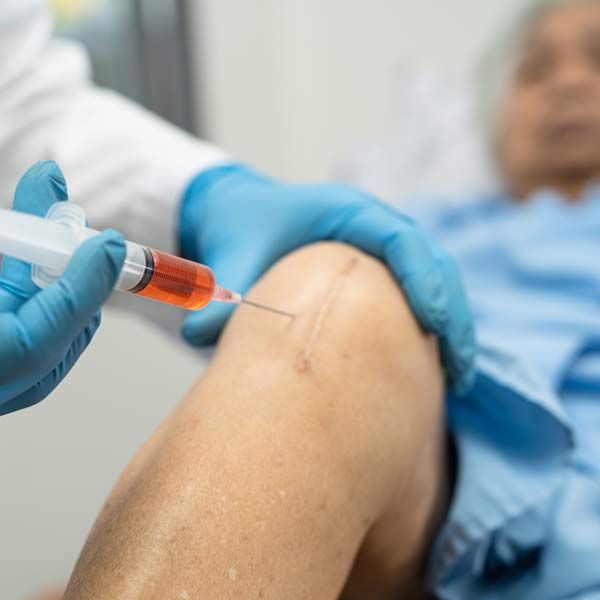
Regenerative Joint Repair
Orthobiologics are increasingly recognized for their potential in regenerative joint repair, particularly in conditions like osteoarthritis and cartilage injuries. By harnessing the healing properties of Orthobiologics, clinicians can stimulate the regeneration of damaged cartilage and promote tissue repair within the joints. These cells can differentiate into chondrocytes, the specialized cells responsible for cartilage formation, helping to restore the joint’s structure and function.
Additionally, Orthobiologics can secrete growth factors and cytokines that enhance the healing process, reduce inflammation, and encourage the regeneration of other supportive tissues. This approach alleviates pain but also seeks to improve overall joint mobility and reduce the dependency on invasive procedures like joint replacement. As research progresses, Orthobiologic treatment promises to provide long-lasting solutions for individuals suffering from degenerative joint diseases.
Learn more about
Regenerative Joint Repair.
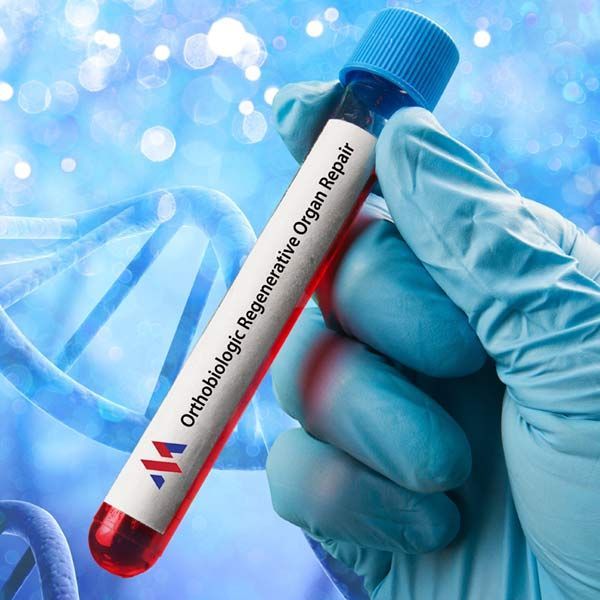
Regenerative Organ Repair (Heart, Liver)
Orthobiologics are paving the way for innovative treatments in regenerative organ repair, particularly for the heart and liver. In heart repair, Orthobiologics have the potential to regenerate damaged heart tissue following conditions such as heart attacks, promoting healing and restoring function. These cells can differentiate into cardiac muscle cells and support the formation of new blood vessels, essential for delivering oxygen and nutrients to the heart tissue.
Similarly, in liver regeneration, Orthobiologics can help repair liver damage caused by diseases like cirrhosis or hepatitis. They can differentiate into liver cells, enhancing the organ’s ability to regenerate and improve its function. Ongoing research continues to explore the best sources and methods for delivering Orthobiologics to maximize their therapeutic effects, offering hope for more effective treatments for patients with severe organ damage.
Learn more about
Regenerative Organ Repair.
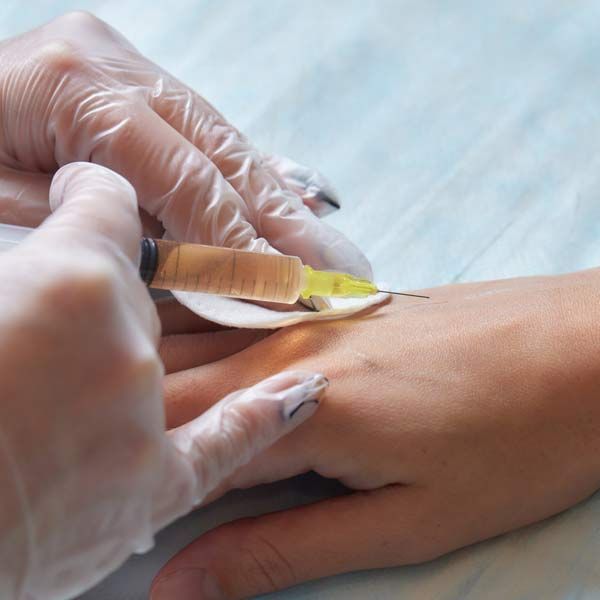
Tissue Healing
Orthobiologics play a vital role in tissue healing by promoting regeneration and repair in damaged areas of the body. When tissues are injured, Orthobiologics can migrate to the site of damage, where they differentiate into various cell types needed for repair, such as muscle, skin, or nerve cells. Additionally, Orthobiologics secrete growth factors and cytokines that create a favorable environment for healing, reducing inflammation, and attracting other cells that facilitate tissue regeneration.
For instance, in orthopedic injuries, Orthobiologics contribute to the healing of tendons and ligaments by enhancing the repair process and improving overall tissue strength. In skin healing, Orthobiologics can assist in regenerating skin tissue after wounds or burns, accelerating recovery and minimizing scarring. As research continues to advance, the therapeutic potential of Orthobiologics in enhancing tissue healing offers promising avenues for treating various injuries and degenerative conditions.
Learn more about
Tissue Healing.
Orthobiologic Treatment Case Studies
Case Study 1: Regenerative Joint Repair Using Orthobiologic Treatment
A 45-year-old male patient, an avid runner, presented with chronic knee pain due to a degenerative meniscus tear and early-stage osteoarthritis. After conservative treatments such as physical treatment and cortisone injections yielded minimal relief, he was referred to a center specializing in regenerative medicine. The treatment involved extracting mesenchymal Orthobiologics from the patient’s bone marrow. This procedure was performed under local anesthesia, harvesting a concentrated solution of Orthobiologics.
Once extracted, the Orthobiologics were injected into the patient’s knee joint using ultrasound guidance to ensure precise placement. The patient was advised to limit impact activities for a few weeks following the injection to promote healing. After three months, he reported significant reductions in knee pain and improved functionality, allowing him to walk without discomfort. By six months, follow-up imaging showed signs of cartilage regeneration, as well as a decrease in inflammation around the joint. Encouraged by these results, he gradually resumed running, initially starting with short distances.
At the one-year follow-up, the patient completed a half-marathon, which contributed to his recovery and enhanced joint function due to the Orthobiologic treatment. This case exemplifies the potential of regenerative joint repair in improving the quality of life for patients with degenerative joint conditions.
Case Study 2: Orthobiologic Treatment for Type 1 Diabetes
A 24-year-old female patient with Type 1 diabetes presented with persistent hypo- and hyperglycemic episodes despite rigorous insulin management. Her diabetes had been diagnosed at age 10, and over the years, she developed complications, including early-stage retinopathy and neuropathy. After consulting with an endocrinologist and an Orthobiologic research team, she was deemed a candidate for a clinical trial exploring the safety and efficacy of autologous Orthobiologic treatment. The procedure involved collecting Orthobiologics from her bone marrow, which were then processed to enhance their ability to differentiate into insulin-producing beta cells.
Following the preparation of the Orthobiologics, the patient underwent a conditioning regimen to prepare her immune system for the transplant, which involved mild chemotherapy. The concentrated Orthobiologics were infused back into her bloodstream, hoping to regenerate the pancreatic beta cells lost to autoimmune destruction. She was closely monitored over the next few months, and her insulin requirements decreased significantly. By six months post-transplant, she experienced a notable improvement in her blood glucose levels, achieving partial remission of her diabetes.
Her HbA1c levels dropped from 8.5% to 6.2%, and she reported fewer episodes of hypoglycemia. After one year, the patient maintained better glycemic control, significantly improving her overall health and quality of life. This case highlights the potential of Orthobiologic treatment to regenerate pancreatic function in patients with Type 1 diabetes.
Choosing Victory Medical Institute for Orthobiologics
Choosing Victory Medical Institute means accessing leading-edge medical care focusing on patient-centered treatment. The institute is renowned for its expert team of healthcare professionals dedicated to providing personalized care tailored to individual needs. State-of-the-art facilities and advanced technology ensure that patients receive the most effective and innovative treatment options. Victory Medical Institute also prioritizes a holistic approach, addressing physical health and emotional and mental well-being.
Committed to ongoing research and education, the institute stays at the forefront of medical advancements, ensuring patients benefit from the latest therapies and interventions. Patients appreciate the comprehensive support offered, from the initial consultation through recovery, fostering an environment of trust and care. The team’s compassionate approach helps ease anxiety and promotes a positive experience throughout the treatment process. Victory Medical Institute is a trusted partner in achieving optimal health and wellness.
Contact Victory Medical Institute for an Orthobiologics Treatment Consultation
At Victory Medical Institute, we are dedicated to providing exceptional healthcare tailored to your unique needs. Our team of experienced professionals utilizes the latest advancements in medical technology and treatment options to ensure your optimal well-being. Whether you seek assistance for chronic pain, joint issues, or other health concerns, our patient-centered approach guarantees comprehensive care and support. You deserve to achieve your health goals, and our compassionate staff is here to guide you through every step of your journey.
Don’t let health concerns dictate your life! Take the first step towards recovery today. Please schedule a consultation with us to discuss your specific needs and explore the innovative treatment options we offer. Together, we’ll create a personalized plan to restore your health and enhance your quality of life. Contact us now to book your appointment and embark on the path to better health at Victory Medical Institute.
Please contact us today.


